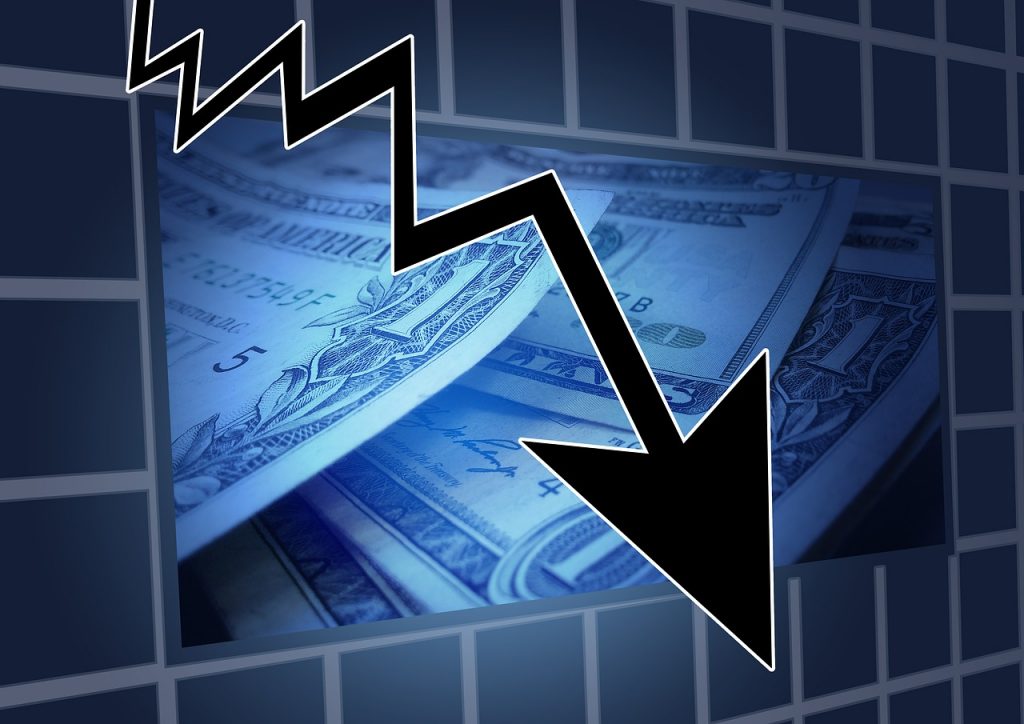- GOLD IRA
- Download Our 2024 Precious Metals IRA Investor’s Guide.
Click Here  Gold IRA
Gold IRA
 Investing
Investing
-
- CRYPTO IRA
- PRICES & STATS
- RETIREMENT PLANS
- BLOG
 Questions? Call (888) 820 1042
Questions? Call (888) 820 1042
Is a US Financial Crisis Imminent? 3 Experts Weigh In
Disclosure: Our content does not constitute financial advice. Speak to your financial advisor. We may earn money from companies reviewed. Learn more
Last Updated on: 25th December 2020, 06:28 am
The financial crisis of 2008 wreaked plenty of havoc and is something few Americans will forget. Yet, thanks in part to the Emergency Economic Stabilization Act of 2008, things took an upward trajectory. For a decade, low-interest rates fueled an enormous run-up of the stocks, real estate, and other assets. However, over the past year, some disconcerting factors are contributing to growing economic concern in the US. In this article, experts weigh-in and provide insight into whether a US financial crisis is imminent.

Table of Contents
It is inevitable But Not Necessarily Imminent
“A financial crisis in the US is inevitable but not necessarily imminent. The U.S. government debt which now stands at over 22 Trillion is counter-intuitively, a strong explanation of why a financial crisis in the U.S. is not imminent. Namely, every time there is a recession, the government will just pile on more debt to smooth out the business cycle.
The economist Ludwig von Mises famously said of a debt-fueled credit crisis that it would come sooner as the result of voluntary abandonment of further credit expansion, or later as a final and total catastrophe of the currency system involved. This quote demonstrates that Ludwig Von Mises understood the importance of returning to free-market money, which he saw as the only monetary regime that would allow preserving the ideal of the free society. Nevertheless, until that day of ‘fiscal restraint' arrives, the U.S. government will continue on its current path of simply adding more debt. There is probably a lot more room to pile on more debt because the ‘Debt to GDP' ratio in America is only just now approaching 100%. The final collapse of the US credit system will not arrive until the Debt to GDP ratio is much higher than today – but arrive one day it will.”
David Reischer, Attorney and CEO, LegalAdvice.com
The Housing Market Acts Like The Stock Market
“A few months ago, the Wall Street Journal published an article titled, “The U.S. Housing Market Boom is Coming to an End, Starting in Dallas.”
And yes, we have all heard about the rising interest rates and housing prices are to blame.
There is another factor that is hurting the housing market that has not been focused on and that is Washington DC. Our nation's leaders are elected to solve, not create, problems. Yet, on a bi-partisan basis, daily we see manifestations of their self-serving vitriol. Given their irresponsible remarks, it's understandable that the public should be overly cautious, even to the point of imprudence, in their financial affairs when their representatives sound as if our Republic's survival is continuously at risk. They have created a mental recession based on fear and the housing market is the recipient of their behavior.
Those of us in the trenches, get first-hand reactions from potential buyers. With consumer confidence at an all-time high, why the hesitation. This is a mental recession, one that is being created because of the dysfunction in Washington DC.
Allow me to be blunt – the perceived headwinds in the housing market are not rising interest rates or supply and demand, it is our politicians. When the Democrats scream “Impeach Trump!”, the Republicans respond with accusations lies and hypocrisy. Hearing this over and over has allowed uncertainty to set up shop in America's psyche. Americans are acting as if they are afraid, and that fear is emotionally paralyzing. We are dominated by emotions and those emotions determine the market. We have all know that the FED’s quantitative easing was going to stop, and the cheap money would come to an end. Washington blaming the housing recession on this is like blaming McDonald's for being overweight.
Everything starts with perception. Politicians are rewarded with headlines when they act as verbal flamethrowers. Accordingly, fear has crept into our mindset. Although there are no indicators pointing to an economic slowdown, the public is acting as if the existing, robust economy should be suspect. Optimism is the secret to selling and, like common sense, it has left the building.
On a positive note, we are beginning to understand the phenomenon of perceiving market drops like the one in 2008 not as a disaster but as a cycle, with opportunities built in. We are becoming accustomed to seeing the housing market act like the stock market. The first time the Dow dropped 300 points, it was headline news. Now, we don’t throw up our hands in despair when we see swings. We don’t see them as devastating crashes any longer. We’re seeing our economy – including the housing market – behave like the commodities market just not as severe: rallying and dropping, based on supply and demand.
We are learning from our new norm, accepting it, and acting on it. Washington DC’s behavior is not the downfall of our economy. That’s why I feel confident that the current housing slump will be past history – sooner than expected, I predict. And the folks who bought homes in 2019 will be bragging about it in 2022. Not only will they profit from their buys, but they’ll also be looked upon as the smart people in real estate.
So, what’s the reality surrounding the real estate market? Sell on optimism and buy on pessimism!”
Sissy Lappin, Founder, ListingDoor.com
It Is Imminent If There Is A Political Shift Of Power
“As Margaret Thatcher said many years ago: the problem with socialism is eventually you run out of other people's money.
According to recent IRS data, the top half of earners pay 97.3% of all income taxes – The bottom half pay 2.8% of all taxes. I believe the latest data is that the top 1% pay 40% of all personal income taxes.
What this really means is that the basic lifestyle, for example, survival, of half the country is generally dependent on the other half. Those with money have the financial freedom to leave. Without them, the handouts to the other half will dry up.
I'd say it is imminent if Democrats take over both the house and senate with enough votes to override a Trump veto.
If that happens, I'd say lots of Americans will be asking, ‘Who is John Galt?’”
Ilene Davis, CFP(R)
Unfortunately, with regards to the future economic well-being of the nation, none possess a crystal ball. There is no definitive conclusion as to whether a financial crisis is imminent in the US. Yet, there are certain measures the average investor can take to protect retirement and other assets from economic turmoil, such as investing in precious metals. Ultimately, however, only time will tell and we must hope for the best.



 Silver
Silver Gold
Gold Platinum
Platinum Palladium
Palladium Bitcoin
Bitcoin Ethereum
Ethereum

 Gold: $2,387.15
Gold: $2,387.15
 Silver: $27.92
Silver: $27.92
 Platinum: $931.67
Platinum: $931.67
 Palladium: $903.43
Palladium: $903.43
 Bitcoin: $67,909.13
Bitcoin: $67,909.13
 Ethereum: $3,254.68
Ethereum: $3,254.68